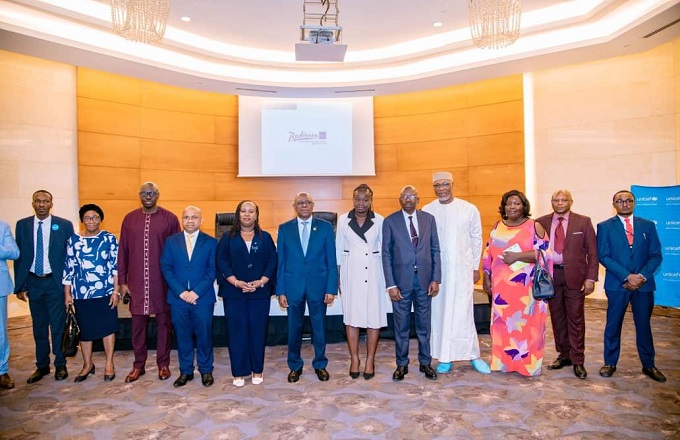Innovative achievements: this is what emerges from the evaluation of the “Mavimpi ya mboté” project implemented in Congo with technical and financial support from UNICEF. According to the Minister of Health, this experiment in maternal and child health should be transformed into a national program.
The ” Mavimpi ya mboté” project “It is a model for integrated supply, quality assurance and certification of health services focused on mother and child, and aims to set up an optimized system with three objectives: 1) To improve the strategic management of health districts through the use of production data, specifically adapted to each context by the provision of modern, easy-to-use tools; 2) To rationalize the use of different funding sources for maternal and child health, for greater impact; 3) To reduce the costs associated with non-quality care, which account for an average of 10% of health expenditure. is an approach to managing the provision of primary health care, with the aim of improving its quality, particularly for maternal and child health in the Congo.
The pilot phase of “Mavimpi ya mboté”, which is the subject of this report, concerns the Loandjili health district in Pointe-Noire. This health project is currently underway in ten health districts, including 4 in Pointe-Noire: Tié-Tié, Loandjili, Mvoumvou and Lumumba; and six in Brazzaville: Ouenzé, Makélékélé, Talangaï, Djiri, Mfilou and Moungali.
According to the Director General of Health Care and Services, Pr Henri Monabeka, the “Mavimpi ya mboté” project serves as a major governance tool for health districts.
“Among the objectives of this program are two aspects: the production of data and the rationalization of resource use,” he said, referring to an innovative approach supported by a solution focused on maternal and child health.
In the two years since it was implemented, this innovative approach, which focuses on strengthening the skills of service providers, has led to a marked improvement in most key indicators. Targeted technical assistance fromUNICEF remains a key factor.
In addition to expanding the project into a national program, Dr. Hamadassalia Omorou Touré recommended, among other things, strengthening the involvement of administrative decentralization in the project’s management of integrated health centers; and promoting the inter-sectoral nature of certain programs such as child protection, water and sanitation.


